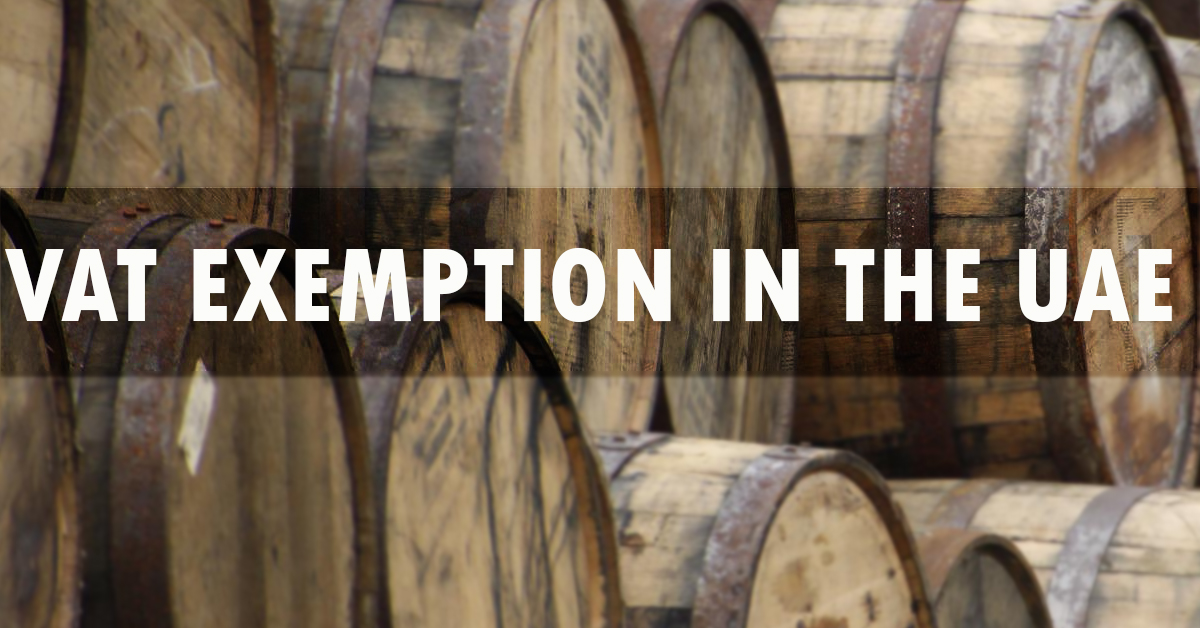Vat Exemption In The Uae:
VAT Exemption In the UAE: The UAE government makes changes to the country’s tax system in line with the changing nature of the economy. The introduction of Value Added Tax or VAT in the UAE was an important change for businesses and for those who want to start a business in Dubai (or in any different Emirate) then you must have a wide understanding of VAT. But before that, you must be familiar with zero-rated and sectors exempted from VAT in the UAE to determine the category of your business. We’ve put together a helpful guide to VAT exemptions in the UAE for the aspiring businessman who wants to start their business in UAE (or any other emirate).
What Is Vat?
Actually, it is a form of indirect tax imposed by the government of UAE on most services or products which is known as Value Added Tax (VAT). The government of UAE introduced it on 1st January 2018 the rate of 5% will help the UAE government to reduce its dependency on oil and other hydrocarbons as an income source.
Under the Federal Decree-Law No. (8) of 2017 on VAT, the FTA categorized VAT into three categories. The first one is 5% standard rate and the second one is exempt and the last one is zero-rated.
The 5% standard rate Value Added Tax (VAT) in the UAE applies to the following categories:
- Entertainment
- Electronics
- Hotel services
- Food and Beverages
- Utility bills
- Private transport services
- School uniforms
- Commercial rent
- Cars
- Jewelry and other sectors
Suppliers producing goods or services in any of these categories must be registered with Federal Tax Authority (FTA) and also need to submit a VAT return to the Authority at the end of each tax period. This is compulsory for businesses that have taxable supplies and imports of 375,000 AED per year and for those taxable supplies and imports with 187,500 per year (and less than 375,000 AED) they are allowed to choose rather register or not for VAT in the UAE.
Please also note that which sectors that can apply zero-rated Value Added Tax (VAT) are separate from the sectors eligible for Value Added Tax (VAT) exemption in the UAE. Let’s look at both categories to understand the differences.
Difference Between Zero-Rated And Vat Exempt Sectors In The Uae:
Here’s what you need to know about the difference between Zero-Rated VAT & exempt VAT in the UAE.
ZERO-RATED SECTORS IN THE UAE:
The zero-rated tax is applied on the Value Added Tax (VAT) taxable supplies, but the rate of Value Added Tax (VAT) applied is 0%. For suppliers who manufacture goods and services with zero-rated is compulsory that they are registered for a Value Added Tax (VAT) account and also file a tax return.
According to the Federal Decree-Law no. (8) of 2017, categories that qualify for zero-rated tax in the UAE include:
- Exports of goods and services to countries outside the GCC
- International transportation (Related Goods)
- Provision of certain Land, Air, and Sea means transport (e g: Airplanes and Ships)
- Investment precious metals (e g: gold, silver 99% pure )
- Newly constructed residential properties. Must be provided for the first time within 3 years of construction of the property.
- Provision of certain educational services, related goods, and services
- Provision of certain Health care services, related goods, and services
UAE Value Added Tax (VAT) EXEMPT SECTORS:
The UAE’s Value Added Tax (VAT) exemptions apply to the goods that have been announced as ‘exempt’ from the additional tax. Providers of goods and services that fall into Value Added Tax (VAT) exempt categories. There is no need to register for Value Added Tax (VAT) or file a tax return in the UAE. For Example, Rentals of residential units in Dubai are included in VAT-exempt real estate transactions.
Here is the complete list of items exempted from Value Added Tax (VAT) in UAE:
- Financial services include life insurance and reinsurance of life insurance. It also includes financial services that are not provided for any express fee, discount, commission, rebate, or similar consideration.
- Residential buildings, Especially other than the residential building are zero-rated
- Empty land
- Local passengers transport
In addition to these categories, tourists are also exempt from paying Value Added Tax (VAT) on products they take back home. However, they will have to pay Value Added Tax (VAT) charges on products consumed during their stay.
Partial Value Added Tax (Vat) Exemptions in the Uae:
A Value Added Tax (VAT) registered person may charge input tax on certain business expenses in certain circumstances. It is fully recoverable if it relates to taxable supply by the individual. In this case, when expenses relate to a non-taxable supply, the individual will not recover input tax.
In a certain situation, Costs can be related to both non-taxable and taxable supplies. In such circumstances, the input tax will have to be the distribution between the two types of supply.
Related Links
Exempt Supplies in the UAE | VAT on consultancy services | VAT on Free zone companies | VAT Registration in the UAE | VAT on Export from UAE to GCC Countries | Audit Services


